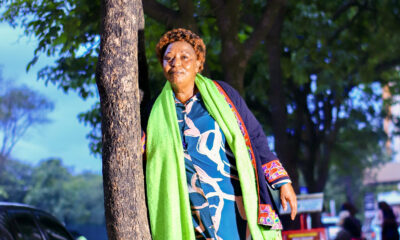Inspired
This Stone-Crusher Found Her Way Into Music at the Age of 70, All Thanks to “Tamaka” & Mr Kleb
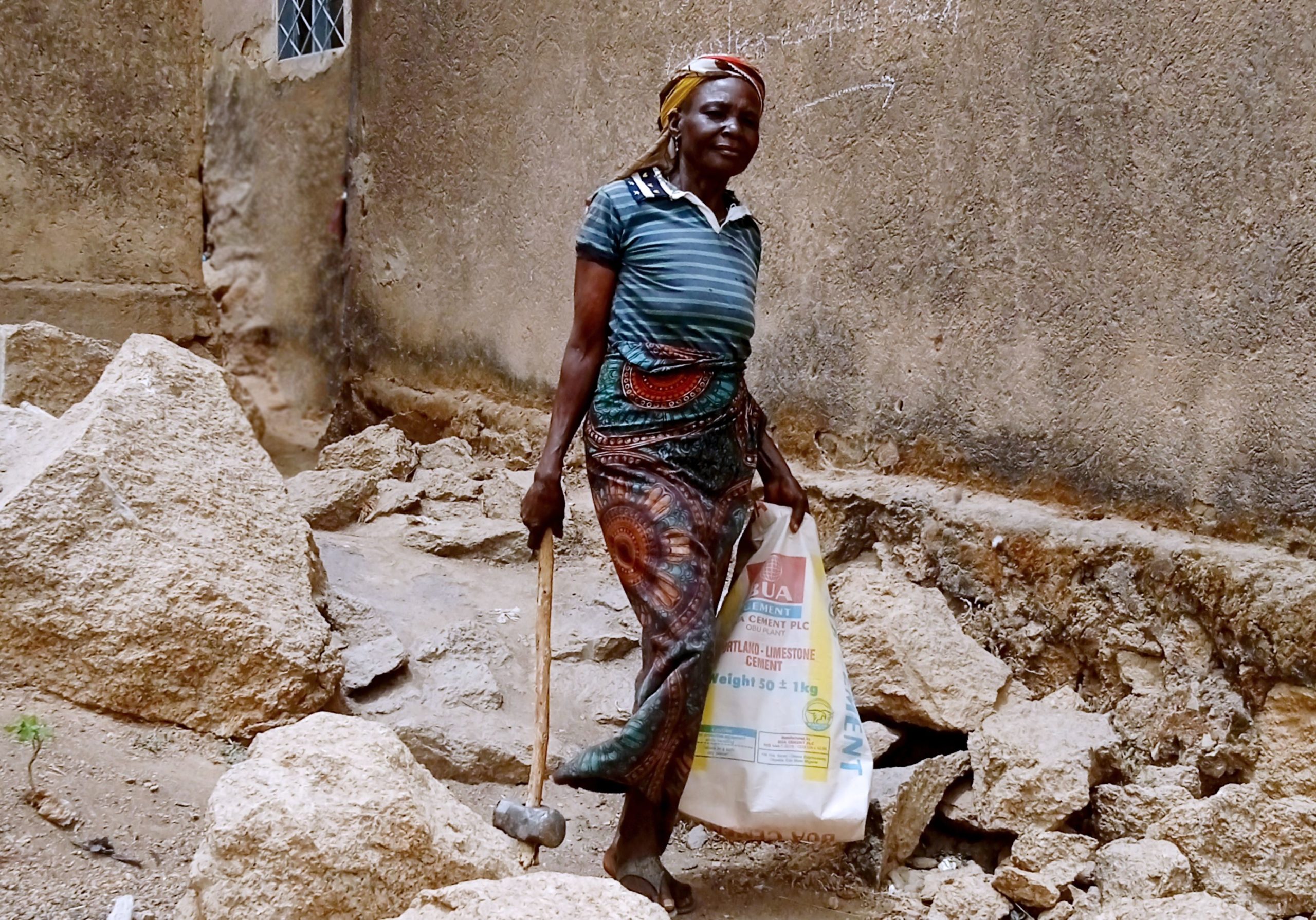
The story of a 70-year-old woman eking out a living at a backbreaking job being transformed into a celebrity figure with a song produced by a Burna Boy producer may sound like a fairytale, but this inspiring story is not only real, it is taking the airwaves, clubs, and churches by storm.
By Dorcas Bello, Bird Story Agency
It’s 8 a.m. in Jos, the capital of Nigeria’s Plateau State. On the shoulder of the road in Tudun Wada, an informal settlement, five women have arrived and are sitting and crushing rocks to add to a pile of gravel built up during the previous day. Soon, over the dissonant sounds of heavy hammers, floats a voice that resonates and blends with the rhythm of the crushing sounds.
It was this voice that attracted the attention of Caleb Balasa, popularly known as Mr Kleb, producer of hit songs like “Omo” and “Money Play” for Grammy award-winning Afrobeats star Burna Boy.
It’s the voice of Mama Hamsatu, who has been eking out a living at this backbreaking job for over 30 years. For the 70-year-old, this is not just a place of trade, it is a stage. And recently, that stage offered an unexpected twist.
Having come across Hamsatu and her singing years earlier, Balasa was surprised to find her still crushing stones and singing in the same way, many years later. His life had taken him to distant cities, but here was Hamsatu, still singing just as he remembered.
“I knew mama as the happy woman who always sang as she broke stones,” Balasa said fondly, explaining how he realised that the voice he was hearing could and should be shared. Balasa said. “I realized this woman has to share a message that tells her story with the soothing texture of her strong baritone voice, which inspired me to invite her to the studio where we composed magic together.”
On the 18th of January 2021, with support from Balasa, Hamsatu released her first song, “Takama,” which was inspired by the trending pressure of wanting to “belong.” Loosely translated as “bragging,” the song is the repetition of a single question: “Why do you brag about earthly things?”
“Tamaka” is a blend of African drums fused with contemporary Afrobeats and hip-hop music. In a marriage of African church sounds and Afro beats, there is an infusion of western style. Some listeners have commented that it’s such an irresistible song.
The single has become a digital hit, trending as a social media challenge. Videos of it are being played in clubs, with dance groups miming the song.
“I can’t believe someone working under the sun can be this content and high-spirited. I am challenged, and I wish we could all donate to support Mama’s voice and let the whole world learn,” said Mary, one of Hamsatu’s fans, from the Nigerian capital, Abuja.
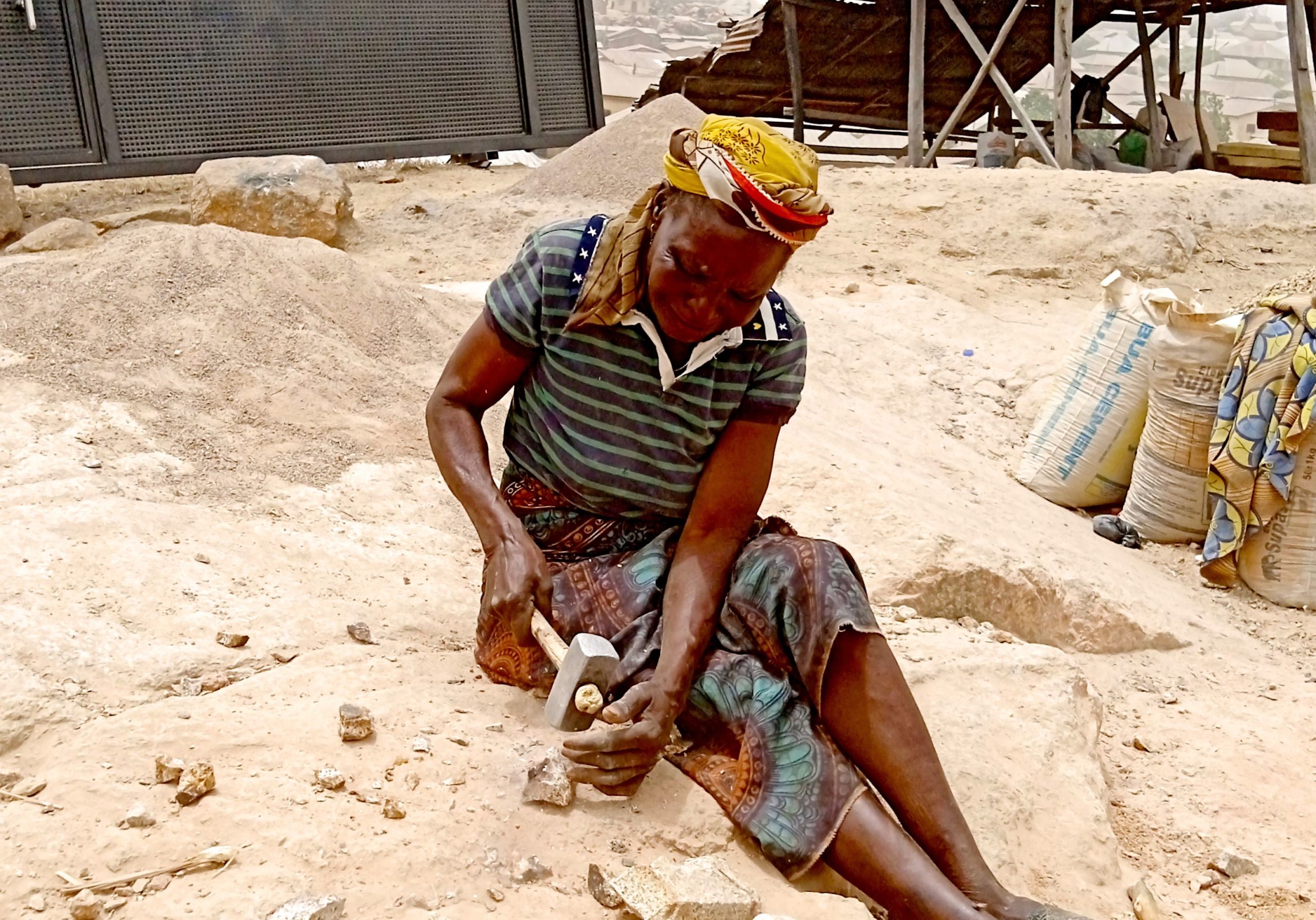
Despite the attention, Hamsatu has not given up on stone-rushing. While she is back in the studio working with Balasa on new songs, she is also still to be found at the roadside with her group, crushing stones. The work is incredibly challenging, physically. Large pieces of rock are provided by construction companies, and each woman in the group collects a portion to break down into gravel-sized stones. The piles of gravel are sold for 10–15,000 naira, which is about 30–40 US dollars.
Hamsatu was not always a stone-crusher, however.
Growing up in a rural part of Plateau State, as the only girl among seven brothers, Hamsatu was introduced to the world of work early in her life. Her father dug wells for a living while her mother gathered and sold firewood. She had to assist.
Hamsatu’s mother also sold “Grewia Mollis,” commonly known as “dargaza,” a shrub used to produce native soup powder scraped from the tree bark, widely eaten on the Plateau. As the only daughter, she often went with her mother to trade firewood and dargaza with people in other towns.
When Hamsatu was just a teenager, she was married off to a soldier. Life was far easier at the barracks—until her husband retired. Then, the family—the couple by now had nine children—had to relocate to Tudun Wada, where they now dwell in a small compound made up of three mud-walled houses with an L-shaped courtyard that serves as their kitchen.
Hamsatu’s husband secured a casual job as a security guard, but life got more demanding. Hamsatu needed to feed and take the children to school but lacked the means.
“I realised how valuable education was, and even though I never saw the four walls of formal education, I was committed to giving my children the best,” Hamsatu said.
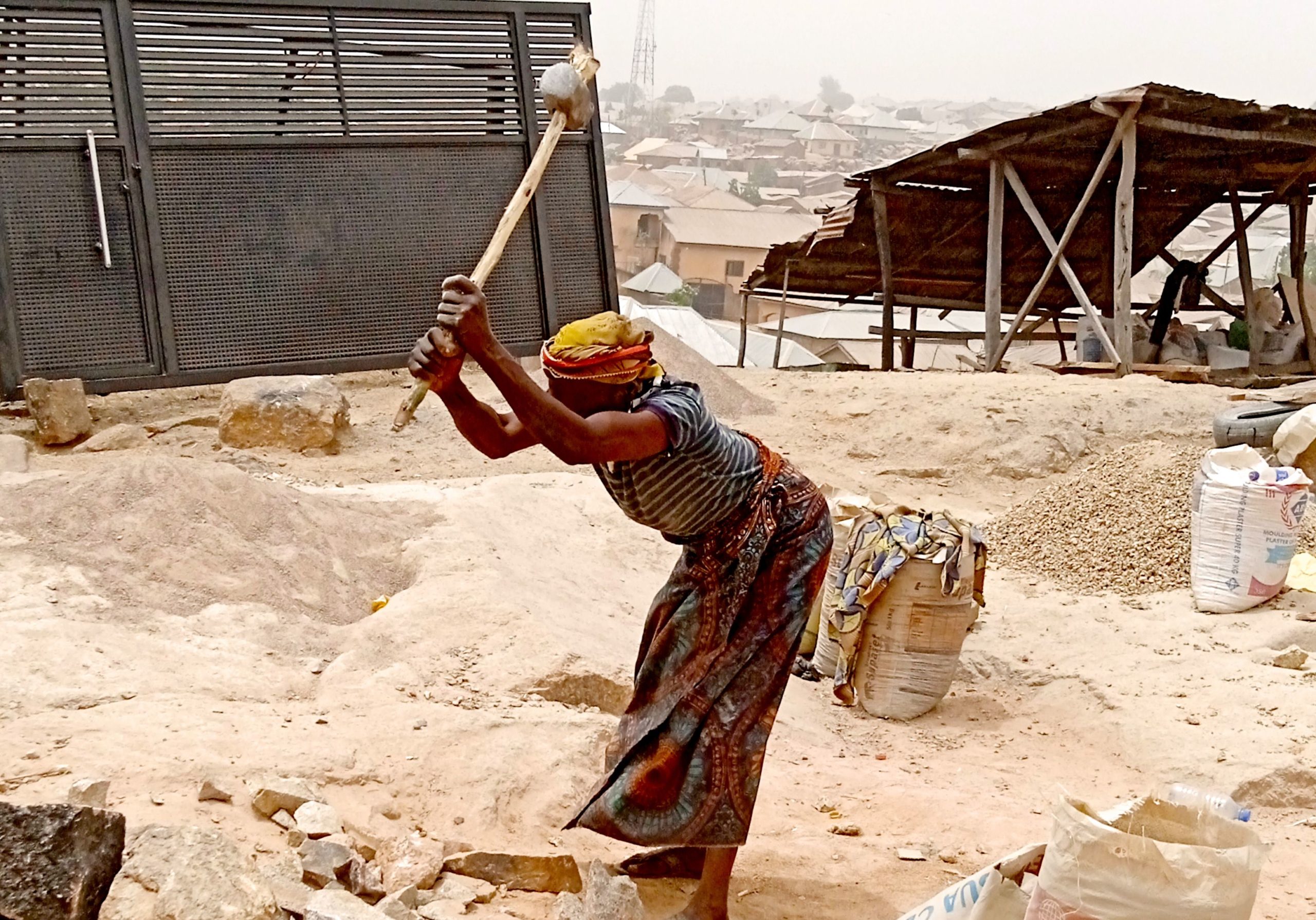
Soon, Hamsatu observed that women like her would go out early in the morning to break stones to earn a living. She decided to join them to make some money to supplement her husband’s income. Since then, the proceeds of her back-breaking toil have gone a long way towards providing for her family and ensuring all her children have received an education up to the tertiary level.
To distract herself from the pain and tiredness that came with the job, Hamsatu began singing to herself. It was that sound that attracted Balasa’s attention when he first passed by as a young man. And the sound he noticed when he passed by again, as a famous music producer. And it’s the sound that has now opened the door to another career for the 70-year-old. Hamsatu once told Balasa, “Singing is my comfort; it keeps me moving.”
Hamsatu now has random people asking to take selfies with her, strangers calling out her name, friends and relatives calling to say they heard her on the radio or saw her on TV.
Hamsatu has suffered many losses, including the deaths of two of her children. However, she has not let any of these challenges bring her down. She has become the epitome of the resilience of an African woman. It is no surprise, perhaps, that the message in her songs stirs something deep for many women. “The world has seen our mama, and mama has brought the world to us.”
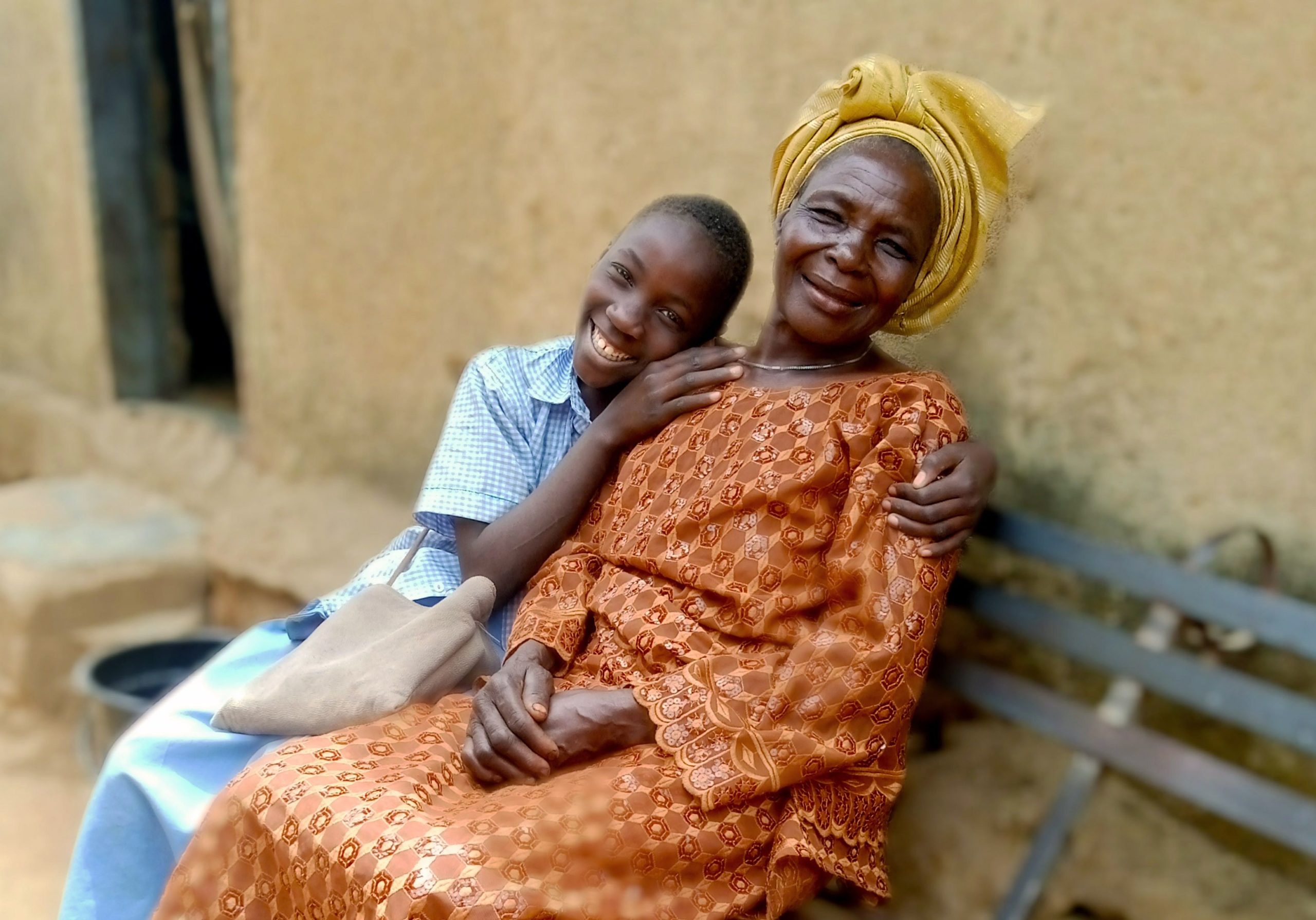
Today, Hamsatu is looking forward to spreading many more powerful messages through her music.
“Who would have thought that someone of low status and age like me would have their name all over the place?” she said.
Her Takama hit could soon open doors into a whole new world–the screen–if plans for a movie by some students at the National Film Insitute, who have reached out to Balasa, come to fruition.
But for now, Mama Hamsatu is happy to keep rocking the world with Takama as she and her producer put the final touches to another single, set to drop soon, with maybe an extended play (EP) by the end of the year.






